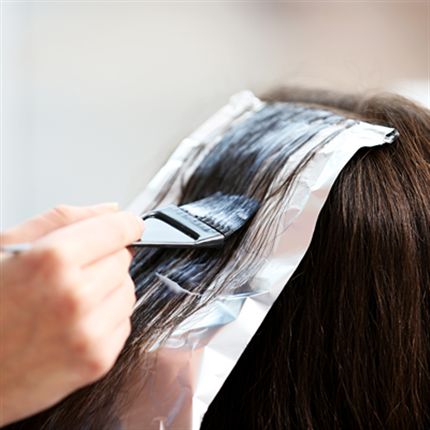5 Ways Cosmetology Licensing Could Change
When you’re working behind the chair, you’re probably not thinking about your state’s license review committee or the threat of deregulation. But unfortunately, the industry is in the spotlight more and more with many states seeking to deregulate cosmetology licenses, meaning that anyone who wanted to be a hairdresser could simply be one without any training requirements. A new coalition, founded in part by the Professional Beauty Association, is working on ways to keep the industry professional, keep clients safe and keep you behind the chair.
“As an industry, our licensing process is messy,” says Steve Sleeper, executive director of PBA. “But we can streamline the process so our professionals can get their license more quickly and be safe.” Steve is on the Future of the Beauty Industry Coalition, which began as a response to more and more states considering deregulating cosmetology licenses. “It takes a lot of time to hone your craft. We’re trying to elevate the profession, but this issue is taking it down one peg at a time.
What Does Deregulation Mean?
Here’s what a state without cosmetology license requirements could look like: anyone who wants to could open a salon and do hair. There’s no obligation to train. There’s no incentive for manufacturers to maintain high quality levels or educate hairdressers. There’s no way to guarantee client or hairdresser safety. It makes the hours and years that licensed hairdressers have spent on education and training irrelevant—and that’s not acceptable.
Why is this happening? Here’s why: non-governmental organizations are pushing the idea broadly that licensing (for a variety of professions) is unnecessary. These groups argue that licenses are artificial barriers to entering the workforce. Cosmetology licenses are being wrapped up into this argument. That’s why PBA and the coalition are being proactive across the country in setting down proposed ground rules.
What’s the Coalition Working For?
The coalition is laying down five points that would streamline the licensing process:
1. License mobility
So many hairdressers leave the industry because they move to a new state and don’t get relicensed. That’s why the coalition is pushing for license mobility—your license travels with you, and if you’re in good standing, you can practice cosmetology anywhere. There would be no need to take any tests or be relicensed in your new state.
2. A consistent number of hours for cosmetology schools across the U.S.
Some states require 1,000 hours, some states require all the way up to 2,300 hours. Choosing one standard across all states will make it easier for students to become licensed. The coalition is recommending a standard of 1,000 hours to be licensed, but makes it clear that you can continue to train for longer than the 1,000 hours if you desire to keep learning.
3. A standardized, national test
To make sure your license can travel with you from state to state, there needs to be a standard test that everyone seeking a cosmetology license must take to get that license. A standard test can also increase client confidence—knowing that every cosmetologist they see is held to the same national standard is powerful.
4. Pre-graduate testing
By requiring all cosmetology students to take a pre-graduate test, it allows them to be licensed immediately upon graduation, so they can start working right away.
5. Continuing education requirements
While states have these requirements, the coalition will continue to ensure that stylists are required to participate in education throughout their careers. As a hairdresser, you know this is crucial to staying up-to-date with the latest tools, chemicals and trends—not only to produce your best work, but to also keep your clients safe.
What Can I Do?
To stay on top of the licensure fight in your state, Steve says to sign up for updates from the Future of the Beauty Industry Coalition and from PBA. To take even more action, you can become a state captain or take action now. He also suggests staying in touch with your state or local cosmetology groups or school community.







